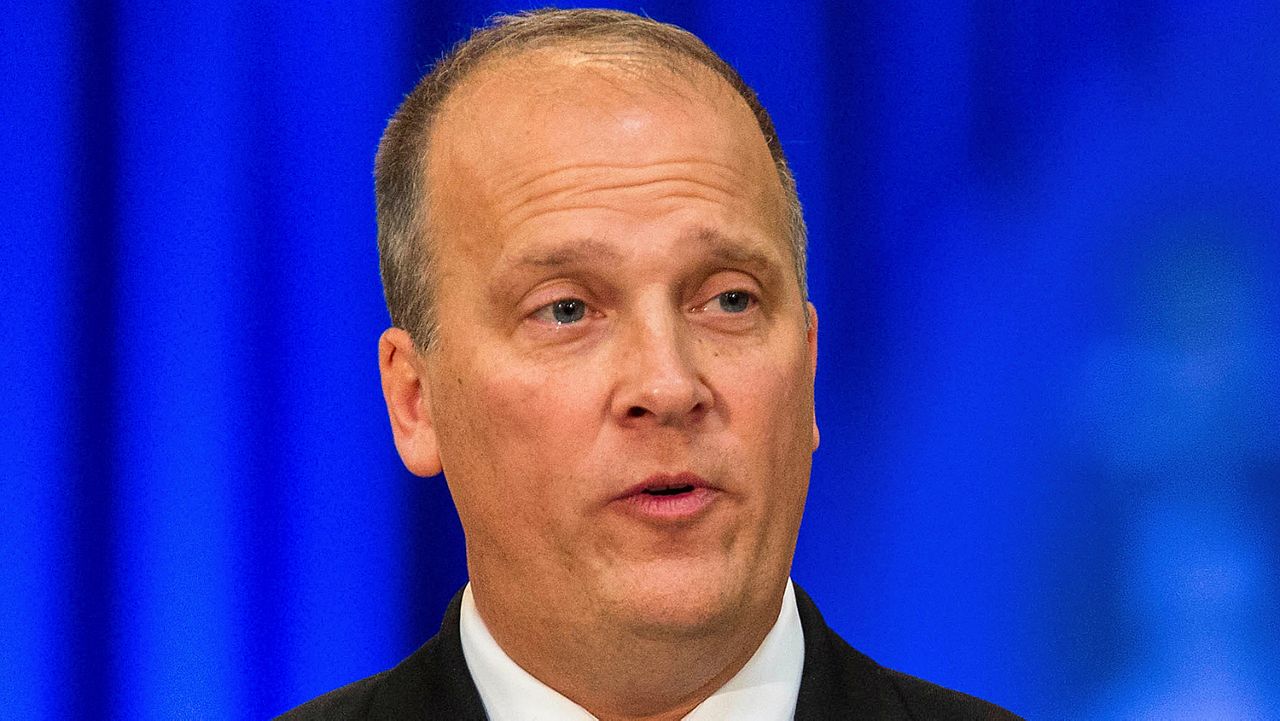MADISON, Wis. (AP) — Former Republican Attorney General Brad Schimel announced Thursday that he is running for the Wisconsin Supreme Court against incumbent Justice Ann Walsh Bradley in 2025, casting the race as a chance for conservatives to win back a majority and serve as a check on liberals.
Bradley is part of a 4-3 liberal majority that took control of the court in August. She has said she will run for a fourth 10-year term. Schimel, a Waukesha County Circuit Court judge, is the first candidate to announce plans to challenge Bradley in the April 2025 election, but other conservatives are considering getting in the race.
In his comments announcing his candidacy as prepared for delivery, Schimel said: “There is no check on this new liberal Supreme Court majority.”
“The only check on them is to take back the majority by winning in 2025,” he said.
Schimel has been outspoken on abortion and some other political issues that are almost certain to get more attention during the race. Abortion was a key issue in the Supreme Court race this year won by liberal Justice Janet Protasiewicz, who ran as a supporter of abortion rights.
As Waukesha County district attorney in 2012, Schimel endorsed a Wisconsin Right to Life legal white paper that argued for keeping on the books the state's ban on abortions except to save the mother's life. A challenge to that ban is expected to come to the Wisconsin Supreme Court, though Planned Parenthood has been offering abortions since September based on a circuit court judge's interpretation of the law. As Wisconsin's attorney general, Schimel supported laws in Indiana and Ohio that limited abortion access.
Schimel also was a staunch supporter of Wisconsin’s voter ID law, which he suggested may have been why former President Donald Trump won the state in 2016. Schimel, as attorney general, joined a multistate coalition that sued to overturn the Affordable Care Act. He also defended Republican-drawn legislative maps that are being challenged before the Wisconsin Supreme Court.
Schimel, 58, served one term as attorney general starting in 2015. He lost his reelection bid in 2018 to Democrat Josh Kaul. Then-Gov. Scott Walker, a Republican, appointed Schimel as a judge after his own defeat but shortly before they both left office. Before being elected attorney general, Schimel spent 25 years as a Waukesha County prosecutor.
Democratic Party of Wisconsin Chair Ben Wikler said in a statement Thursday night that Schimel "doesn't deserve a promotion to our state’s highest court.”
“Wisconsinites rejected Brad Schimel after a single term as attorney general because his extreme politics and inept mismanagement became too great to ignore, with thousands of rape kits left untested at the State Crime Lab and millions of dollars wasted on partisan efforts to suppress voting rights and push new restrictions on abortion access," Wikler said.
Bradley, 73, was first elected to the Supreme Court in 1995 and is the longest-serving justice on the court. She won her last election in 2015 by 16 points.
Bradley did not return a text message seeking comment.
The court is weighing several high-profile cases that were filed after Protasiewicz's win in April gave liberals a majority. In addition to the redistricting challenge, the court is considering whether to hear cases seeking to overturn Wisconsin's private school voucher program and to weaken powers the Republican-controlled Legislature have used to block pay raises for University of Wisconsin employees.
Protasiewicz's race was the most expensive judicial contest in U.S. history. With majority control in play again in 2025, Bradley's race is likely to break spending records.
Republicans have floated the possibility of impeaching Protasiewicz over comments she made during the campaign voicing her opposition to an abortion ban and Republican-drawn electoral maps.
Schimel said the Protasiewicz race set a dangerous precedent.
“We need to restore confidence in the people of Wisconsin that the justice system will be fair and impartial,” Schimel said in his prepared remarks. “I will be honest about my principles, but will never prejudge a case and will never put my views above the law.”



